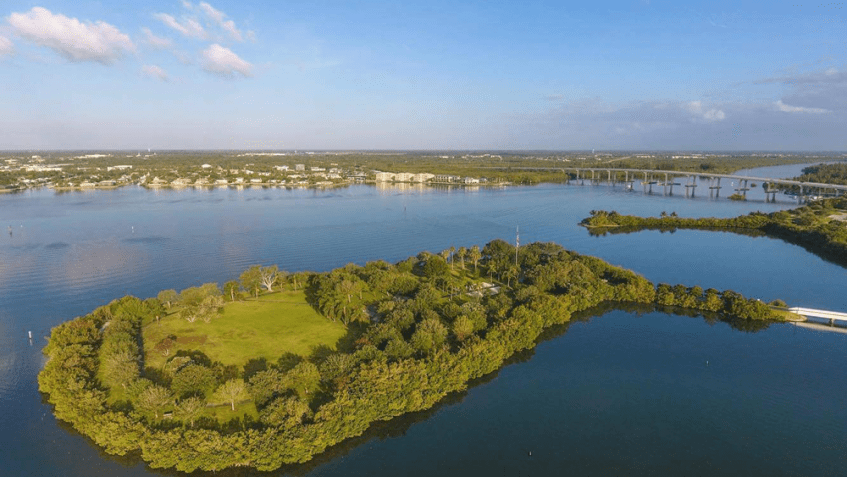DWC Hears from Experts on the Need for a Storm Water Utility
Storm water – “it’s not the most sexy subject” but an important one, Jean Catchpole told members of the Democratic Women’s Club of Indian River County.
Catchpole, interim chair of the Indian River Neighborhood Association, and Judy Orcutt, vice president of the Clean Water Coalition of Indian River County, spoke to the issue of storm water management and its effect on the Indian River Lagoon at a recent virtual club meeting.
The 156-mile-long Lagoon is the estuary home of 4,000 species of plants and animals, Orcutt said. The Clean Water Coalition was formed in 2018 by leaders of several civic and conservation organizations who came together in common cause to make a collective impact to restore the waters of Indian River County.
While the water quality of the Lagoon in Indian River County looks pretty good, Orcutt said, the quantity of seagrass has declined. Seagrasses are the nurseries for wildlife, and the Lagoon has been declared impaired, she said.
How does storm water affect the Lagoon? Runoff often contains pollutants that flow into the waterway. Adding to the problem is the historical dredging and draining of the area, pushing rainwater into the lagoon, Orcutt said. Contributing to the runoff is the increase in the number of impervious surfaces where water can’t soak through, such as parking lots, buildings, driveways and sidewalks, she said.
Storm water management includes retention ponds, dry ponds and swales to filter out pollutants.
To address storm water problems within the city of Vero Beach, Catchpole said the municipality needs to create a storm water utility. She and her organization, the Indian River Neighborhood Association, say the creation of such a utility would provide funds to upgrade the city’s 50-year-old drainage infrastructure.
The IRNA’s mission is to preserve the quality of life in the county by advocating for sustainable growth and the protection of its natural resources.
Numerous cities in Florida have established storm water utilities, which generate more than $500 million annually, Catchpole said. The utilities provide dedicated funding for water quality improvement without property tax increases, she said.
Vero Beach currently has no new water quality projects in its budget and its limited funds barely cover maintenance of its system, Catchpole said.
Fees would be calculated on the square footage of impervious surfaces. The cost for the average homeowner would be about $5 a month, she added.
“We need to think long term,” Catchpole said.
NOTE: The Democrats of Indian River are proud members of the Indian River Neighborhood Association and the Clean Water Coalition.

